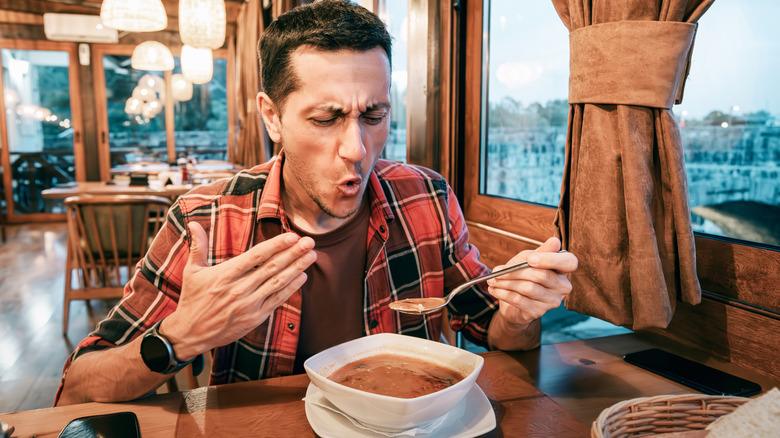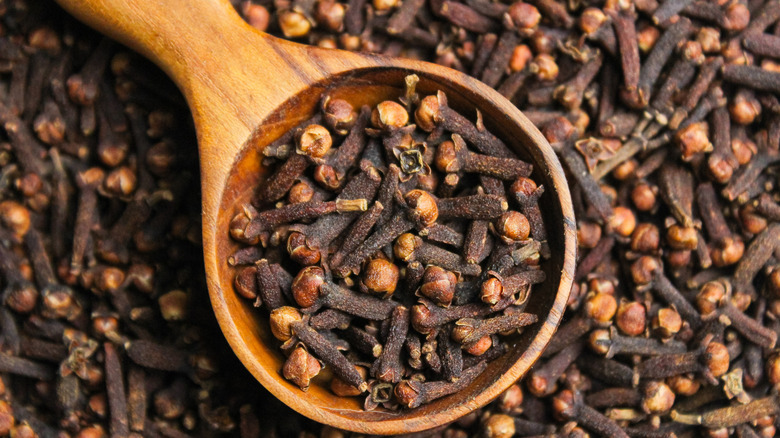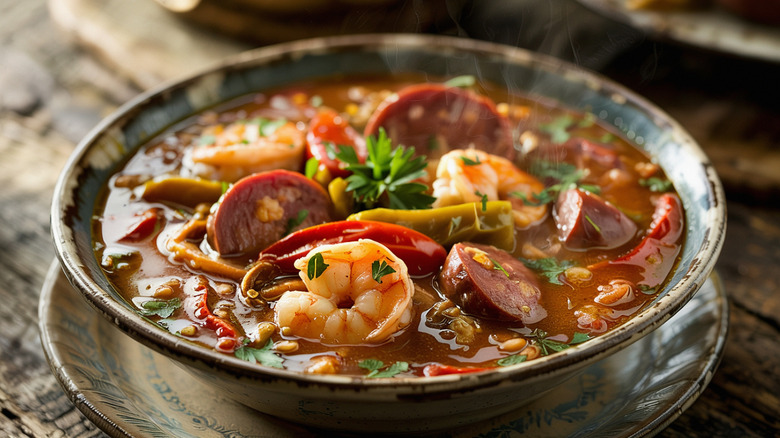Dish Too Spicy? Adding This Seasoning Saves Your Taste Buds From Torment
I'm a spicy food connoisseur and have been accused by my children of adding extra spice to almost everything I eat. Though I feel like I have a pretty good grasp of how much seasoning and/or pepper to add based on my tolerance, it does get out of hand sometimes if I misjudge the amounts. When a dish gets away from you and ends up too spicy, the typical advice is to reach for dairy or sugar. One surprising counter to heat worth trying, though, is ground cloves. While expensive, they can balance heat without diluting or muting your dish. Their subtle sweetness and earthy, aromatic profile can help round off the sharp edge of chiles, especially in layered sauces like mole or spicy tomato bases.
Just a pinch or two, added during cooking, is enough to tone things down. You're not trying to mask the spice; you're trying to bring it into harmony with the rest of the dish. This trick is especially helpful when working with spicy cuisines where dairy wouldn't be appropriate or desirable. And because cloves pair well with both savory and sweet elements, they integrate smoothly into a variety of recipes without standing out or overshadowing more delicate ingredients.
Why cloves work better than you'd expect
What makes cloves so effective at balancing out heat is their chemical composition. Cloves contain a compound called eugenol, which has both analgesic and warming properties. That means it's not just there to add flavor to your food; it also interacts with your taste receptors in a way that can temper pungent or overly hot ingredients. It has anti-inflammatory and numbing effects that can be helpful when you're trying to avoid your mouth feeling like a torture chamber. When you accidentally overdo it on chili peppers or cayenne, the intense capsaicin can dominate the palate and make everything else harder to appreciate. Cloves provide a kind of counterbalance, adding warmth that's complex rather than aggressive.
This is especially true in recipes where multiple spices are already working together. Those are going to be meals like spiced stews, curries, or barbecue sauces — anywhere that a little depth can bring cohesion to an overly fiery bite of food. And what makes cloves different from cooling ingredients that alter the texture (like yogurt or cream) is that they leave the body of the dish unchanged. You're left with a final product that tastes deliberate and well-rounded instead of like a last-minute rescue project. It's a small addition that brings noticeable finesse to dishes that are teetering on the edge of being too hot.
Where (and how) to use cloves for the best results
To use cloves effectively, timing and moderation are your bread and butter. Add ground cloves early in the cooking process, especially when you're working with sauces or braises that simmer for a while. This gives the spice time to mellow and infuse without becoming sharp or bitter. Whole cloves can also be used, but they should be removed before serving unless you're going for a bold and pungent hit. In practical terms, this technique works beautifully in tomato-based dishes, slow-cooked meats, or bean stews that could benefit from a more relaxed level of heat without taking away the signature kick.
Try it in chili, Cajun-inspired gumbo, or even a heavily seasoned pasta arrabbiata. Outside of savory cooking, cloves are already a staple in mulled wine and baked goods for their warming properties. Applying that same idea to savory heat management is a natural leap. The spice blends in subtly and even elevates other flavors, particularly in spice-heavy profiles like a dish that uses berbere, perhaps. Pair it with cinnamon, cumin, or coriander, and you'll find it helps to round off the heat beautifully ... no mouth-burning required. For home cooks, it's a smart backup plan if you're working without dairy or simply want a more nuanced fix for a flavor imbalance.


